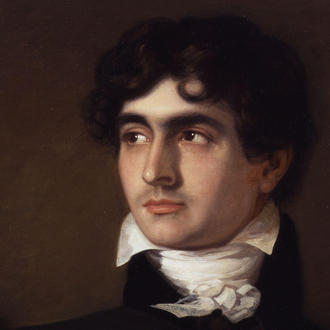We use cookies to improve the Bookmate website experience and our recommendations.
To learn more, please read our Cookie Policy.
To learn more, please read our Cookie Policy.
Accept All Cookies
Cookie Settings

en
John William PolidoriJohn William PolidoriJohn William PolidoriJohn William Polidori
es
- 6
de
- 2
pt
- 2
hr
- 1
John William Polidori was an Italian English physician and writer, known for his associations with the Romantic movement and credited by some as the creator of the vampire genre of fantasy fiction.Polidori was the oldest son of Gaetano Polidori, an Italian political émigré scholar, and Anna Maria Pierce, a governess. He had three brothers and four sisters.He was one of the earliest pupils at recently established Ampleforth College from 1804, and in 1810 went up to the University of Edinburgh, where he wrote a thesis on sleepwalking and received his degree as a doctor of medicine on 1 August 1815 at the age of 19.In 1816 Dr. Polidori entered Lord Byron's service as his personal physician, and accompanied Byron on a trip through Europe. At the Villa Diodati, a house Byron rented by Lake Geneva in Switzerland, the pair met with Mary Wollstonecraft Godwin, and her husband-to-be, Percy Bysshe Shelley, and their companion (Mary's stepsister) Claire Clairmont.One night in June, after the company had read aloud from the Tales of the Dead, a collection of horror tales, Byron suggested that they each write a ghost story. Mary Shelley worked on a tale that would later evolve into Frankenstein. Byron wrote (and quickly abandoned) a fragment of a story, which Polidori used later as the basis for his own tale, The Vampyre, the first vampire story published in English.Rather than use the crude, bestial vampire of folklore as a basis for his story, Polidori based his character on Byron. Polidori named the character "Lord Ruthven" as a joke. The name was originally used in Lady Caroline Lamb's novel Glenarvon, in which a thinly-disguised Byron figure was also named Lord Ruthven.Polidori's Lord Ruthven was not only the first vampire in English fiction, but was also the first fictional vampire in the form we recognize today—an aristocratic fiend who preys among high society.Dismissed by Byron, Polidori travelled in Italy and then returned to England. His story, "The Vampyre", was published in the April 1819 issue of New Monthly Magazine without his permission. Whilst in London he lived and died in Great Pulteney Street (Soho). Much to both his and Byron's chagrin, "The Vampyre" was released as a new work by Byron. Byron even released his own Fragment of a Novel in an attempt to clear up the mess, but, for better or worse, "The Vampyre" continued to be attributed to him.His long, Byron-influenced theological poem The Fall of the Angels, was published anonymously in 1821.He died in August 1821, weighed down by depression and gambling debts. Despite strong evidence that he committed suicide by means of prussic acid, the coroner gave a verdict of death by natural causes.His sister Frances Polidori married exiled Italian scholar Gabriele Rossetti, and so John is the uncle of Maria Francesca Rossetti, Dante Gabriel Rossetti, William Michael Rossetti and Christina Rossetti, though they were born after his death.His sister Charlotte made a transcription of his Diaries, but censored "peccant passages" and destroyed the original. Based only on the transcripton, The Diary of John Polidori was edited by William Michael Rossetti and first published in 1911 by Elkin Mathews (London). A reprint of this book, The diary of Dr. John William Polidori, 1816, relating to Byron, Shelley, etc was published by Folcroft Library Editions (Folcroft, Pa.) in 1975. Another reprint by the same title was printed by Norwood Editions (Norwood, Pa.) in 1978.A number of films have depicted John Polidori and the genesis of the Frankenstein and "Vampyre" stories in 1816: Gothic directed by Ken Russell (1986), Haunted Summer directed by Ivan Passer (1988) and Remando al viento (English title: Rowing with the Wind) directed by Gonzalo Suárez (1988). He also appears as a minor and unsympathetic character in the Tim Powers horror novel The Stress o
more
Books
Audiobooks
Quotes
there were no mirrors,
- Like
- Comment
- ShareFacebookTwitterCopy link
- Report this
fb2epub
Drag & drop your files
(not more than 5 at once)
